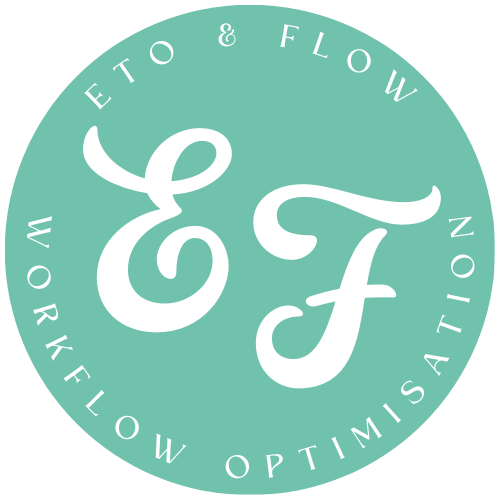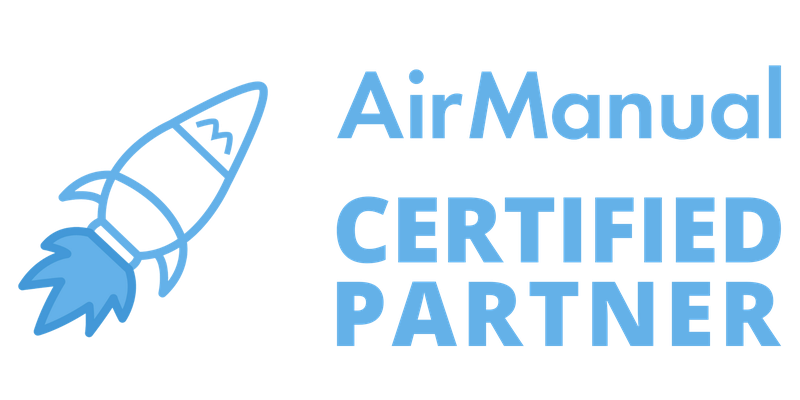Staying organised is crucial to success – and as a small business owner, you’re already juggling a variety of tasks like managing schedules and collaborating with team members, all while keeping your eye on those weekly, monthly and yearly targets!
Fortunately, we are living in a time whereby organisational tools are affordable and in abundance, and more often than not integrated with AI.
So we have written a handy list of several organisational tools available that can help you streamline your work and maximise your productivity. These tools are designed to be simple to implement and use, making it easier than ever to stay organised and make the most of your time…
1. Trello
Trello is a popular project management tool that allows you to create boards, lists and cards to manage your tasks and projects. With Trello, you can easily collaborate with team members, assign tasks, set due dates, and track progress. Trello’s visual interface makes it easy to see what needs to be done and who is responsible for each task, making it an ideal choice for teams.
2. Monday.com
Monday.com is another project management tool that’s great for automating your workflow. You can centralise all of your apps, processes, tools, and files into one Work OS, so you can get all your work done in only one place. Monday.com allows you to choose from over 40 platforms to integrate seamlessly in your monday.com workflows. Their Views and Dashboards are our way to analyse and report on data so you can make confident decisions and keep your team focused on what really matters.
3. Google Drive
Google Drive is a cloud-based storage and collaboration tool that lets you store and share files with others. With Google Drive, you can create and edit documents, spreadsheets, and presentations, all in real-time. You can also share files with team members, set permissions, and collaborate seamlessly. Google has also started to introduce a first set of AI-powered writing features in Docs and Gmail to trusted testers. With these features, you’ll be able to draft, reply, summarise, and prioritise your Gmail, brainstorm, proofread, write, and rewrite in Docs, and bring your creative vision to life with auto-generated images, audio, and video in Slides, while also going from raw data to insights and analysis via auto completion, formula generation, and contextual categorization in Sheets. You can even generate new backgrounds and capture notes in Meet, and finally enable workflows for getting things done in Chat.
4. Evernote
Evernote is a note-taking app that lets you capture and organise your ideas, notes, and to-do lists in one place. With Evernote, you can create notebooks, tag notes, and even search for handwritten notes using optical character recognition (OCR) technology. Evernote also integrates with other apps, such as Trello and Google Drive, making it easy to keep everything in one place.
5. HubSpot
HubSpot CRM is a customer relationship management tool that helps you track and manage your customer interactions and sales pipeline. With HubSpot CRM, you can easily create contacts, log sales activities, and track deals. You can also automate repetitive tasks, such as sending follow-up emails, and get insights into your sales pipeline with customizable reports and dashboards.
6. Air Manual
Air Manual is a process management tool that lets you create and manage your business processes in one place. With Air Manual, you can create checklists, workflows, and standard operating procedures (SOPs) for your team to follow. Air Manual’s user-friendly interface makes it easy to create and manage your processes, and its integrations with other apps, such as Slack and Zapier, make it a powerful tool for streamlining your business operations.
Using these organisational tools, you can keep track of tasks and deadlines as you are able to collaborate with team members more effectively and manage projects more efficiently.
Here at Virtual Administration, we put a huge amount of value in software that has enabled us to keep track of customer interactions and manage your sales pipelines, giving us a way to create and manage business processes more effectively – which is why we are living proof that using these tools can help you save time, reduce stress, and help you achieve your business goals more effectively.
If you’re not already using these organisational tools, consider giving them a try! Many offer free versions or trial periods, so you can test them out before committing. By using at least five of these tools, you can take your business to the next level and achieve greater success.
FAQs
What are organisational tools?
Organisational tools are software applications or platforms that help individuals or teams keep track of tasks, manage schedules, collaborate with others, store and share files, manage customer interactions, and create and manage business processes.
Why are organisational tools important for business owners?
Organisational tools help business owners streamline their work, improve productivity, reduce stress, and achieve their business goals more effectively. By using organisational tools, business owners can stay on top of tasks and deadlines, collaborate with team members more effectively, manage projects more efficiently, and keep track of customer interactions and sales pipeline.
Which organisational tools should business owners use?
The choice of organisational tools depends on the specific needs of the business owner and their team. However, some popular organisational tools for business owners include Trello, Monday.com, Google Drive, Evernote, HubSpot CRM, and Air Manual.
Are there any free organisational tools for business owners?
Yes, many organisational tools offer free versions or trial periods for users to test out before committing. For example, Trello, Google Drive, and Evernote offer free versions, while HubSpot CRM offers a free plan.
When choosing organisational tools, it’s important to consider the specific needs of your business and team. You may want to research different tools, read reviews, and try out free versions or trial periods before committing. Additionally, it’s important to ensure that the tools you choose integrate well with your existing software and workflows.
To see how Virtual Administration could help your business processes become more organised and seamless than ever, simply get in touch today – we’d love to walk you through your options.









